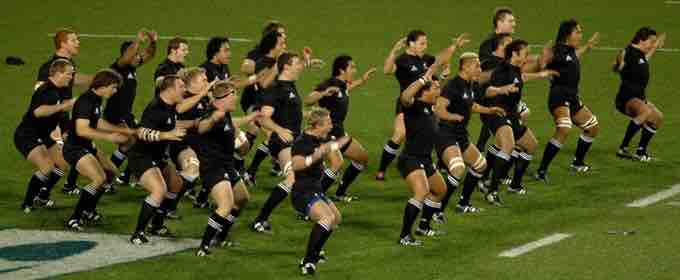Delegating key decision making to groups, teams, or committees occurs often within organizations. Decisions made by groups can be better informed by broader perspectives and different sources of information and expertise than those made by an individual decision maker. Along with these advantages, however, interpersonal and group dynamics presents dilemmas that can make it more difficult for groups to make effective choices.
Group cohesion, or positive feelings between individuals and productive working relationships, contributes to effective group decision making. In cohesive groups information is more easily shared, norms of trust mean it is easier to challenge ideas, and common values help focus decisions around shared goals. Encouraging constructive disagreements and even conflict can result in more-creative ideas or more solutions that are easier to implement.

Group dynamics: the New Zealand All Blacks
Rugby, a game with fifteen players per team, is the ultimate team game. Group dynamics require all fifteen players to work together, often demanding tremendous synergy to outlast an opponent. The historic success of New Zealand's All Blacks has been attributed not only to skill, but also to how the team achieves ideal group dynamics.
Groupthink
One of the greatest inhibitors of effective group decision making is groupthink. Groupthink is a psychological phenomenon that occurs within a group of people in which the desire for harmony or conformity results in an irrational or dysfunctional decision-making outcome. By isolating themselves from outside influences and actively suppressing dissenting viewpoints in the interest of minimizing conflict, group members reach a consensus decision without critical evaluation of alternative viewpoints.
Loyalty to the group requires individuals to avoid raising controversial issues or alternative solutions, and there is a loss of individual creativity, uniqueness, and independent thinking. The dysfunctional group dynamics of the in-group produces an illusion of invulnerability (an inflated certainty that the right decision has been made). Thus the in-group significantly overrates its own decision-making abilities and significantly underrates the abilities of its opponents (the out-group). Furthermore, groupthink can produce dehumanizing actions against the out-group.
Psychologist Irving Janus, the leading theorist of groupthink, identified ways of preventing it:
- Leaders should assign each member the role of "critical evaluator." This allows each member to freely air objections and doubts.
- Leaders should not express an opinion when assigning a task to a group.
- Leaders should absent themselves from many of the group meetings to avoid excessively influencing the outcome.
- The organization should set up several independent groups working on the same problem.
- All effective alternatives should be examined.
- Each member should discuss the group's ideas with trusted people outside of the group.
- The group should invite outside experts into meetings. Group members should be allowed to discuss with and question the outside experts.
- At least one group member should be assigned the role of devil's advocate. This should be a different person for each meeting.
.